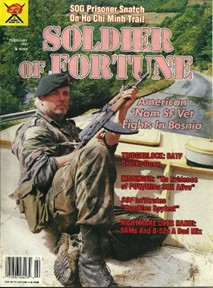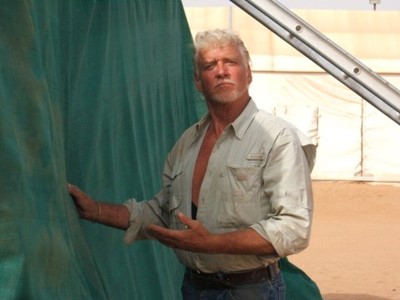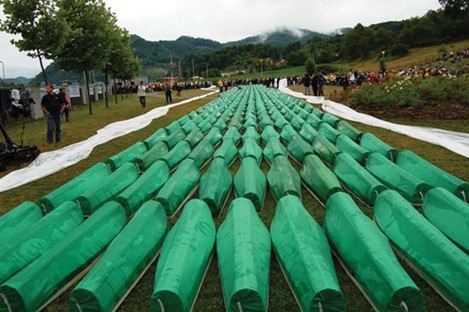(This is a remembrance of my friend Giles Pace who died recently of cancer. I am sad while trying to feel happy for having the chance to have met this amazing man. Giles was a trusted news source and sounding board on foreign policy and defense issues. Although I could never quote him directly when he was alive, his wife Margaret now says I can finally reveal all that Giles has done for me and the world. We are also asking for donations to help Margaret with expenses related to Giles’s death and the home he was remodeling. You can donate here. Giles was a former Green Beret who served in Vietnam. He used his training to help the refugees in Haiti after the devastating earthquake and in Africa as he was worked with African Union troops. He also risked his life delivering humanitarian aid to Bosnian Muslims in the Balkan War. This piece below took place one night in Las Vegas right before a newscast I was anchoring in July 1995. It’s a night I won’t forget.)
LAS VEGAS, NV July, 1995
 The television studio was dark. It was two hours before the 11 p.m. newscast. We sat on the interview set; no cameras, no microphones, no production crews.
The television studio was dark. It was two hours before the 11 p.m. newscast. We sat on the interview set; no cameras, no microphones, no production crews.
My tie was loosened and my sleeves rolled up. It was a slow news night in Las Vegas. Most of the newscast was written. Re-reading scripts and slapping on make-up were my only remaining chores.
Even if I was busy, I would still find time for Giles Pace. He was a trusted news source and a friend.
Giles was U.S. Army Special Forces, a retired Green Beret now assisting humanitarian efforts around the world. At that time, he was delivering aid to Bosnian Muslims in their civil war against the heavily armed Serbian Nationalists in the former Yugoslavia.
Hollywood couldn’t cast anyone better than Giles. If you wanted a noble soldier, Giles was your choice. Giles was 6-foot-tall. He was in great shape with a solid upper body and a handshake that brought you to your knees. His darting blue eyes appeared under heavy eye lids. His hair was gray and wavy. Yet his face was younger than his 51 years helped by a determined jaw, outlined by a wafer thin beard that met in a go-tee.
He joked about himself, “What’s a Polock Mormon like me doing in Bosnia helping the Muslims?” Then he would seriously answer the question by saying, “Because they are innocent people being trampled by thugs.”
We met two years before when he moved to Las Vegas. He had just returned from Bosnia with video of the civil war raging in the former Yugoslavia. He gave me exclusive access to his story and some incredible video: Giles in firefights with Serbian guerillas; Giles perched atop a supply truck loaded with food and medicine; Giles speaking to Bosnian fighters camped in the mountains.
 Bosnia’s Ambassador to the United Nations Mohammed Sacirbey vouched for Giles in letters and phone calls. A local Congressman who spoke to Giles at my request divulged little information, but said Giles’ stories coincided with intelligence reports he had seen.
Bosnia’s Ambassador to the United Nations Mohammed Sacirbey vouched for Giles in letters and phone calls. A local Congressman who spoke to Giles at my request divulged little information, but said Giles’ stories coincided with intelligence reports he had seen.
Fortunately, I worked under a newspaper editor at the Norwich Bulletin, the late great Hank Pearson, whose trick to finding a story idea was to remember “you border on the rest of the world.” So, I always stayed alert to major news stories and their possible local connections.
As a result, I produced a five-part series to explain the civil war thousand miles away to television viewers in Las Vegas. Besides the video from Bosnia and interviews with Giles, I added interviews with Serb natives living in Las Vegas. Although the series had little news impact, it created a friendship between Giles and me.
However, on this night in the summer of 1995, he was different. He was agitated and desperate. I had never seen him like this.
“There’s going to be a massacre in a matter of days in Srebrenica,” he said. Srebrenica is a city in Bosnia. “You have to interview me.”
“I need more than that,” I said.
“My sources say they will wipe out thousands. We have to do something.”
“Giles, I can’t just throw you in front of a camera and let you make predictions,” I said.
 Although his information was usually correct, I was careful about using Giles as an expert on the war since he was clearly an advocate for one side. Some of his statements in previous stories led to some angry, though not justifiable, phone calls from local Serbians. And was there anyone in Las Vegas deeply involved in this issue who could do anything or alert anyone?
Although his information was usually correct, I was careful about using Giles as an expert on the war since he was clearly an advocate for one side. Some of his statements in previous stories led to some angry, though not justifiable, phone calls from local Serbians. And was there anyone in Las Vegas deeply involved in this issue who could do anything or alert anyone?
I called the ABC News Desk in New York. Maybe they can get word to producers and reporters in Europe. Maybe they could use an interview with Giles and eventually see him as a source for future stories. However, the news editor was not interested in the predictions of a retired soldier living in Las Vegas. And why would he take a story about Bosnia from a news anchor in Las Vegas who had never been to Yugoslavia? I even got word to some people in Congress, but they had no intelligence to confirm what he was saying.
A week later, Giles was proven right. International news reports confirmed the massacre at Srebrenica. Eight thousand Muslims were butchered. Giles had tears in his eyes when I finally interviewed him about the events that had unfolded.
Giles understood my predicament. However, I felt horrible. Was it reasonable to think I could have stopped the massacres? Absolutely not, but, in essence, I did nothing.
The frustration for news people is that the best stories, and sometimes the most truthful stories, are the ones you can’t tell.
(Now I can tell you a lot more since Giles has died. Giles was a brilliant forward thinker. He predicted much of what eventually happened in Europe after the Balkans conflict. He was recently spot-on when it came to Syria. More to come. Check out the Go Fund Me campaign to help Giles’ widow Margaret. Thank you.)
Comments on this entry are closed.